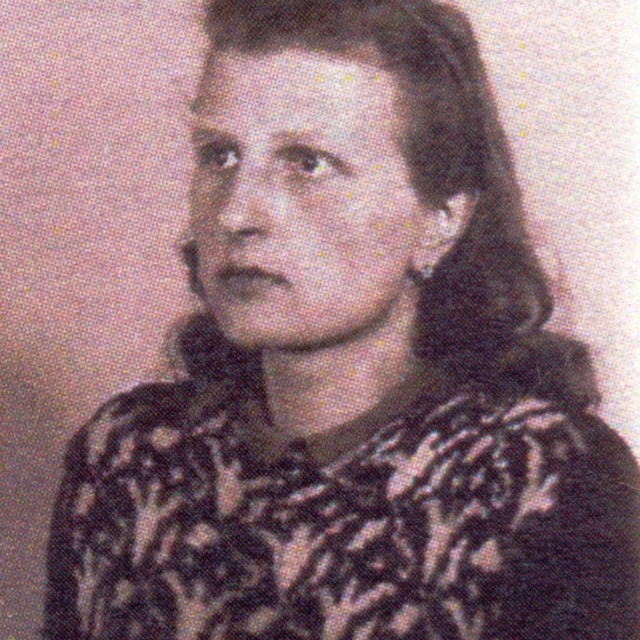Sleep my little prince, the prisoners had sung
In the prison in Klatovy, Helena Šidáková was interrogated by a deputy judge. He asked her where she had set out in the night with her child. She answered, that she set out to find her husband who had left her in Czechoslovakia. The judge was surprised: “Why, do you know where your husband is?” – “I don’t know that,” answered Helena with her son in her arms. “For goodness sake, woman, how were you going to find him?” wondered the judge, who had treated them politely. At the end of the interrogation he had allegedly stated in front of everyone that he admired her courage and that he could not imagine the greatness of the love that brought her on such a hard journey. The record of the interrogation was made by a girl also named Helena, and also a prisoner, who was by a matter of coincidence put in the same cell as Helena and her son: “There was a family atmosphere there. The prisoners, who could hear the child from our cell, sent us all kinds of goodies from their parcels, which their families had sent them. Zdenda cried a lot because he didn’t want to pee into the hole in the cell. There was just that squat toilet there. He was used to his potty and there was no way I could make him take a pee. He also wouldn’t eat the prison food. It was a dumpling with a piece of meat and sauce, he would spit it out because he was used to milk, to the infant formula. When the warden came into the cell, he would let Zdenda go for a run in the corridor. He was running and shouting with joy, running back and forth, so all the prisoners could hear him,” Helena describes the several days spent in the prison in Klatovy. The first night the one-year-old Zdeněk cried. The prisoners moved by this story, started to sing in unison Mozart’s lullaby “Sleep my little prince.” In the morning, her cell mate Helena stated that this could not go on any longer, that she would speak up for them, during the day she worked as a recorder in the office of the prison chief. Apparently, she had made a scene, in the sense that how could it be possible for a mother with her child to be held in a cell, that the child would starve to death. From that moment on, they started to send semolina porridge to her cell. After about four days they released her with her son. They feared a prison riot. Helena had signed an undertaking and a declaration that she would not leave her place of residence in Prague. She immediately set out to Starý Knín near Dobříš. She anticipated that her husband Zdeněk Šidák would be waiting for her there and that together they would try to illegally cross the border.
Hodnocení
Hodnotilo 0 lidí
Routes
Not a part of any route.
Comments
No comments yet.



